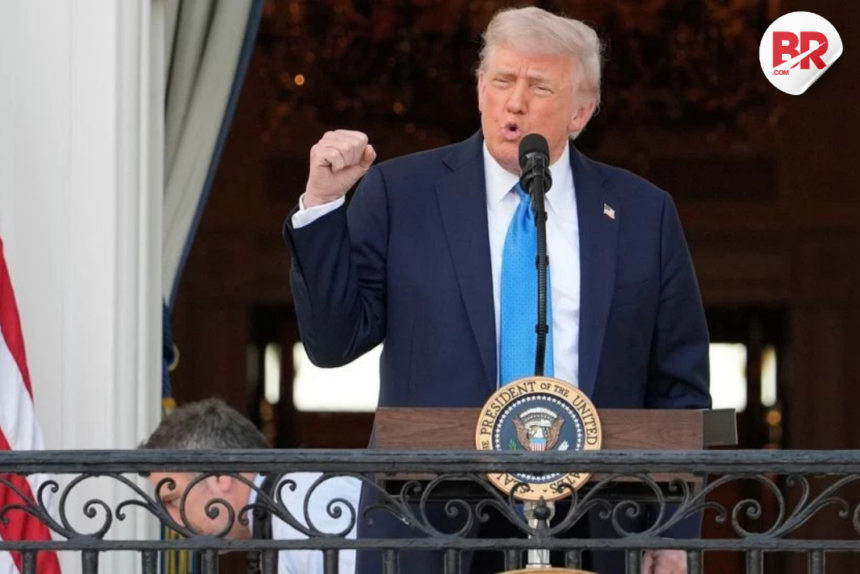
U.S. President Donald Trump has signed a new travel ban targeting 12 countries, citing growing concerns over terrorism and visa fraud. The ban, part of Trump’s second-term immigration crackdown, takes effect June 9, 2025, at 12:01 a.m. EDT.
The order blocks nationals from Afghanistan, Myanmar, Chad, Congo, Equatorial Guinea, Eritrea, Haiti, Iran, Libya, Somalia, Sudan, and Yemen from entering the U.S. In addition, Burundi, Cuba, Laos, Sierra Leone, Togo, Turkmenistan, and Venezuela will face partial restrictions.

So what does this mean for regular people?
If you’re from one of these countries—or have family there—travel just got a lot harder. Even student visas and work permits could be on the chopping block. For thousands awaiting U.S. resettlement, especially Afghans stuck in Islamabad, this could be the end of the line.
“We will not allow people to enter our country who wish to do us harm,” Trump declared in a video posted on X.
Trump said the list isn’t final—more countries may be added. However, visas already issued before June 9 won’t be revoked.
This isn’t Trump’s first rodeo with travel bans. Back in 2017, he rolled out a controversial ban on several Muslim-majority countries. After legal battles, the Supreme Court upheld it in 2018. President Biden later reversed it in 2021, calling it “a stain on our national conscience.”
Now, Trump is doubling down, blaming poor vetting systems, visa overstays, and terrorist presence in affected countries.
Also Read Why Indian Students in the US Are Worried About Donald Trump’s New Policies
As proof, he pointed to a recent attack in Boulder, Colorado, where an Egyptian national allegedly hurled a gasoline bomb at a pro-Israel rally. Egypt isn’t on the list, but the optics were clear: Trump’s message is that any nation with loose borders is a national threat.
“We can’t vet what we can’t verify,” he said. “And we’re not gambling with American lives.”
Reactions are pouring in.
Somalia has offered to work with the U.S. to address security concerns. Meanwhile, Venezuelan officials slammed the move as “fascist,” warning their citizens that simply being in the U.S. is now a risk.
The Afghan, Myanmar, and Lao governments haven’t responded yet. But tensions are expected to rise as the ban disrupts families, students, and asylum seekers.
From a policy angle, this move reinforces Trump’s October 2023 promise to restrict travel from Gaza, Libya, Somalia, and beyond. His January 20 executive order called for stricter vetting—this proclamation is the result.
Critics argue the policy feels less about security and more about fear politics. Supporters say it’s about time the U.S. tightened its borders.
One thing’s for sure: the travel ban is back, and this time, it’s casting a wider net than ever.












